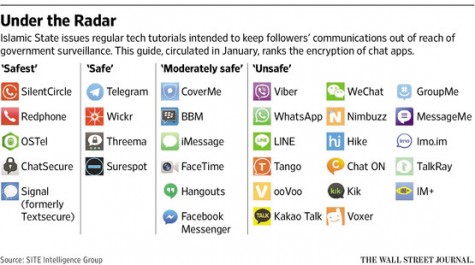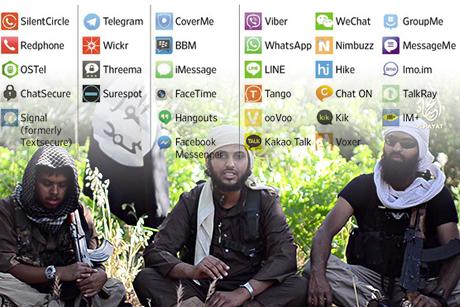ISIS covert internet invasion
ISIS supporters use technology to gain members and avoid detection
The Islamic terrorist group known as ISIS has been the world’s number one enemy the past few weeks, gaining more attention since their most recent attacks on Paris. After the latest massacre, many start to question the safety of our own nation and if this terrorist group poses as an existential threat to the U.S.
With the momentum of this threat overseas, many issues have been sparked debate about closing borders and increasing security to prevent Isis from entering, yet, what many fail to realize is that Isis is already here.
Since early 2014, about 70 people have been arrested in the U.S. on charges with relations to the terrorist group and many more investigations have taken place spreading across all 50 states. In 2015 alone, 56 out of the 70 total arrests were made as people become more cautious on surveillance of suspicious individuals after the attacks on Paris.
Islamic State or ISIS, is well-known for its ability to gain followers via social media like Facebook and Twitter. Through these new means of technology, communication through social media has become an easy way to contact individuals who are easily influenced to join a cause so extreme. The ISIS influence is attracting American followers who are contacting each other and pushing new members towards violence.

The Islamic terrorist group has built up a tech-savvy division of commanders who instruct tutorials to supporters in order to use the most secure and least expensive ways of communicating. These methods used encrypted platforms built for gaming and other commercial uses in order to slip under law enforcement radar.
Former deputy director of the Central Intelligence Agency, Mike Morell, stated “Terrorists ability to use encrypted communication is a huge problem” and other officials are warning the public that Terrorist groups have “gone to school” on eluding detection and spying practices.
With the growing fear of home front attacks, the questions dawns on the topic of regulations. Do we allow governments to access encrypted tools and police companies like Google, Facebook, and Twitter that ISIS thrives on? Tech companies resist that push, stating that trust will be lost in the internet if we give into the fear that terrorist group gives off.
Although with tensions rising after the Paris attacks, that push for regulations may be a factor we see in the future.

Mike's the name, journalism's the game
Founder and host Ridder's Reviews
Elder Putt Putt














